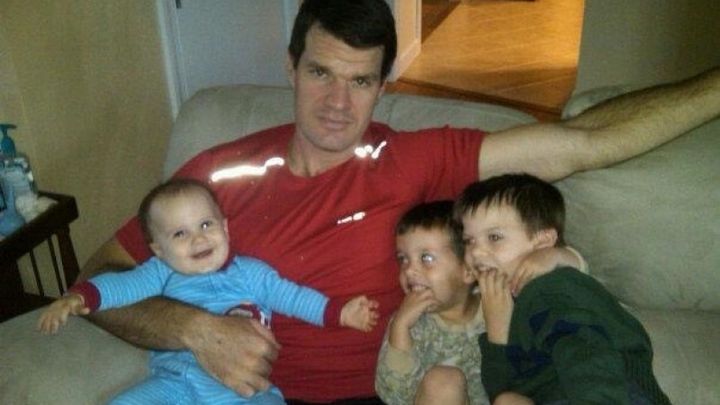
Brian Ross Family Fund
Donation protected
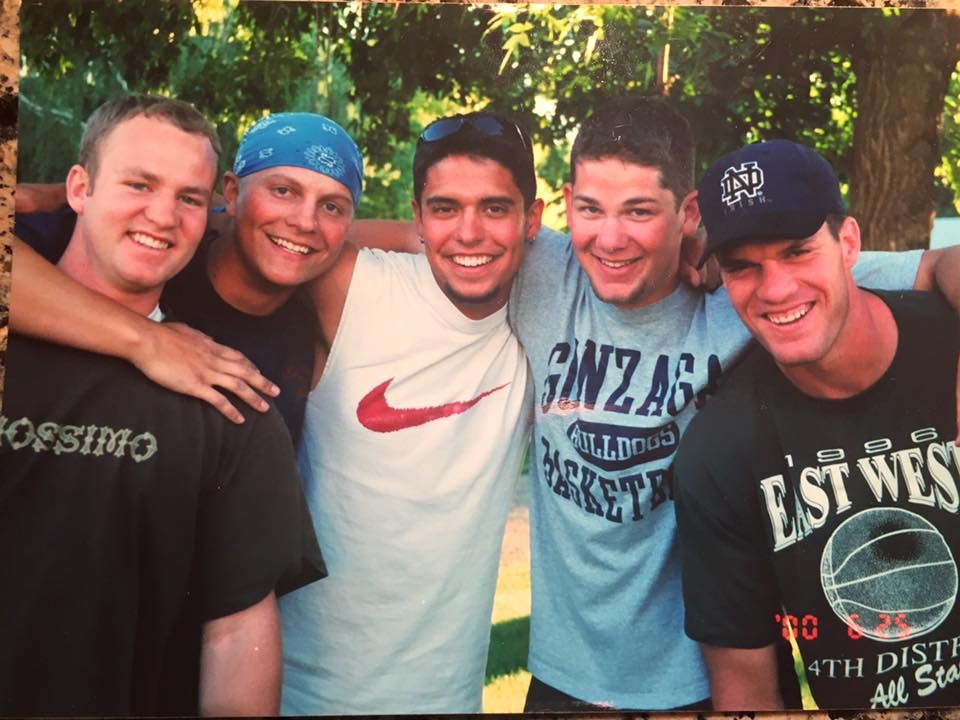 One of my best friends, Brian Ross, passed away on December 15th, 2015 after a brief illness at the age of 37. A former Navy EOD officer, with multiple deployments and Crossfit Instructor, his passing was a shock to everyone. Brian left behind his wife, Robyn of 12 years and four children. Three boys and one girl ranging in age from 10 to 3.
One of my best friends, Brian Ross, passed away on December 15th, 2015 after a brief illness at the age of 37. A former Navy EOD officer, with multiple deployments and Crossfit Instructor, his passing was a shock to everyone. Brian left behind his wife, Robyn of 12 years and four children. Three boys and one girl ranging in age from 10 to 3. I've set up this page for a way for people to help Brian's family with funeral costs and with raising Brian and Robyn's four children, but also for people to get to know Brian. Because once you get to know what type of man Brian Ross was, you'll definitely want to help out his family.
Brian grew up on a small farm outside of Shoshone, Idaho. A typical day was getting up, doing chores, heading into school, basketball/football practice and then back out to the farm for more chores. It was this daily schedule that helped Brian become the man he was. He always pushed you to be a better person and to this day, everyone he served with-trained-coached, would say the same thing. In high school, our basketball coach would make us run line drills until somebody could be beat Brian. If you think that Brian might have pulled back a bit, even one time, you'd be wrong. He was a competitive beast and he wasn't going to win on that drill, he was going to make you earn it.
It was this drive that got him into the Air Force Academy where he played on the Basketball Team. Same thing happened there. Brian would not quit and was always pushing those around him to be better.
Brian graduated from the United States Air Force Academy in 2001 and decided to take a commission as an officer in the U.S. Navy. In his first duty station Brian served as the Deck Division Officer and First Lietuenant aboard the U.S.S. Chief, an Avenger-class mine countermeasures ship. After completing a deployment with the Chief in support of Operation Iraqi Freedom, Brian became one of a small number of naval officers to graduate from Naval School Explosive Ordnance Disposal (NAVSCOLEOD) as an explosive ordnance disposal (EOD) technician.
After completing explosive ordnance disposal (EOD) training Brian became the officer-in-charge of his first EOD team: EOD Mobile Unit Two, Detachment 40. Brian led his seven-man EOD team on a deployment in 2006 attached to the 24th Marine Expeditionary Unit and in support of the USS Iwo Jima Strike Group. As part of that deployment, Brian supported air operations for Operation Enduring Freedom and worked to train military forces from foreign allies including Jordan.
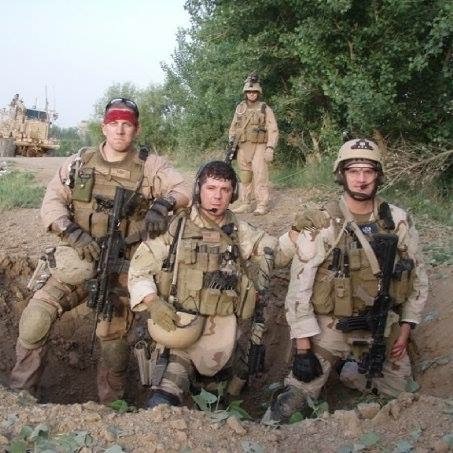
After returning from his first EOD deployment in December 2006, Brian was quickly tasked with leading another EOD team, this time on missions to disarm improvised explosive devices (IED) in Iraq. As the officer in charge of EOD Mobile United Two, Detachment 22, Brian led his team on daily route clearance and IED response missions in and around Ramadi from February to September of 2007. As all of Brian's teammates before and after his second EOD deployment would agree, Brian's chief at the time, Jason Sparks, remembers that one of the best things about Brian was that you could always rely on him to have your back.
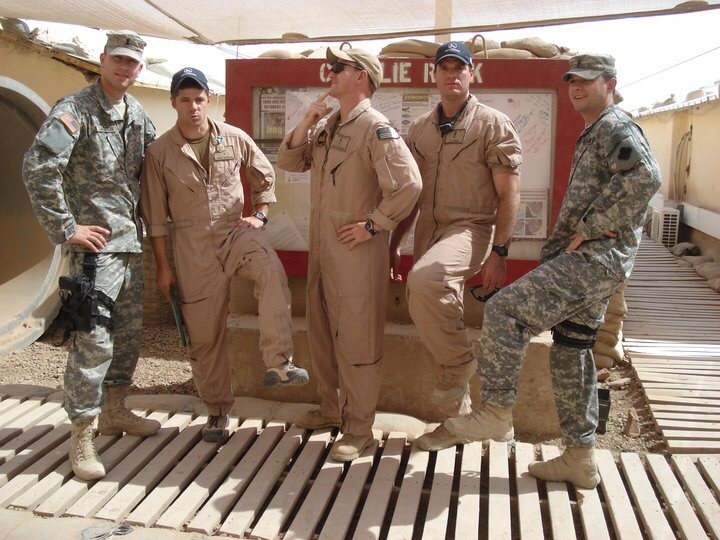
Following Brian's second EODdeployment, he transferred to the west coast and became a part of EOD Mobile Unit One, Company 1-1. While there, Brian completed his final deployment as a Company Commander for Task Force Troy in Tikrit, Iraq from 2008 to 2009. In addition to Brian's "typical" mission responsibilities on his third EOD deployment, he also served as the lead instructor for the 4th Iraqi Army Bomb Disposal Company. Brian's chief on that team, Ken Englehart, remembers Brian as someone who had something to teach each even to those with much more experience. As Ken notes, of the few men he strives to model his life after, "Brian Ross is at the top of that list."
By the time Brian left the Navy in 2009, he had amassed an incredible array of military medals and honors. Among those awards was the Bronze Star Medal, one of the U.S. Military's highest honors, which Brian was awarded for his incredible leadership in combat.
Since 2009, Brian has still put his talents into helping people, but obviously he was able to home more with his family. Brian's wife, Robyn, said that if Brian was doing a project and the kids wanted to help he would let them. It didn't matter if it took three or four times as long.
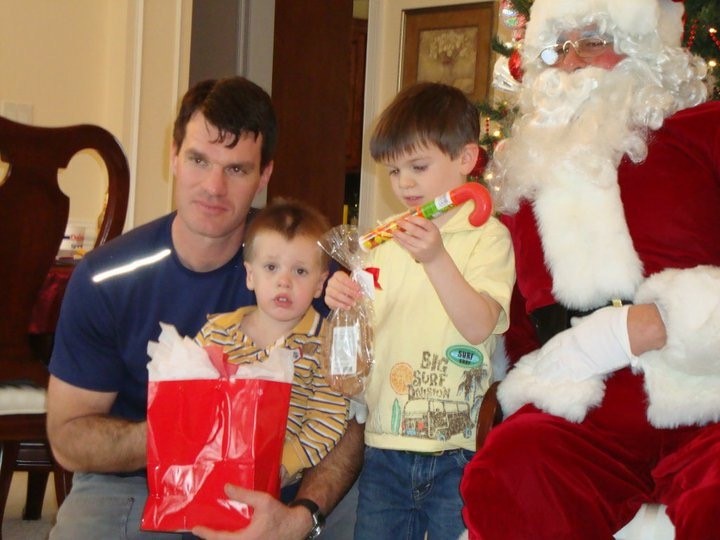
Organizer and beneficiary
Clayton Sandy
Organizer
Salt Lake City, UT
Robyn Ross
Beneficiary